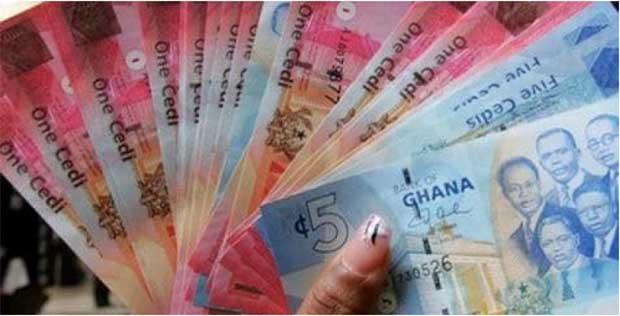Minister of Finance, Ken Ofori-Atta, has described the performance of the Ghana cedi in the last 18 months as satisfactory as compared to the last six years.
Presenting the country’s mid-year budget review to Parliament on Thursday, the sector Minister blamed the depreciation of the cedi against major international currencies on “external shocks.”
The cedi started weakening at the beginning of May this year when it traded around GH¢4.8250 to the dollar at a point.
According to the Finance Minister, “The year-on-year depreciation of the Ghana cedi against the US dollar stood at 4.9 percent (2017), 9.7 percent (2016), 15.7 percent (2015), 31.3 percent (2014), 14. percent5 (2013) and 17.5 percent (2012).’’
“A further interrogation of the data from Bank of Ghana shows that the depreciation for the first half (6 months) of 2018 has been the best since 2017. It is instructive to note that from January 2018 to June 2018 the cumulative depreciation of the cedi against the dollar was 2.4 percent as against 17.2 percent in 2012, 3.4 percent in 2013, 26.7 percent in 2014, 26.1 percent in 2015, 3.3 percent in 2016 and 3.7 percent in 2017. If this is anything to go by, it means that the performance of the cedi is likely to be better than even the 2017 performance which was an all-time low compared to the four years of the Mahama administration. ‘’
Mr Ofori-Atta revealed that relative to the Pound Sterling and the Euro, the domestic currency cumulatively appreciated by 1.40 percent and 2.6 percent respectively.
“This compares favourably with a depreciation of 6.13 percent and 7.99 percent against the Pound and the Euro respectively during the same period in 2017.”
Prior to the mid-year budget review, business owners in Accra and other parts of the country cited the cedi’s depreciation as their major challenge and appealed to government to address the situation to lessen their plight.
They contended that the development impacted negatively on their operations.
For the first five months of the year, the Ghana Cedi remained relatively stable, both on the interbank and forex markets, largely due to improved macroeconomic conditions.
On the inter-bank market cumulatively, the Ghana cedi depreciated by 0.2 percent against the US dollar during the first five (5) months, compared to a depreciation of 2.0 percent during the corresponding period in 2017.
Relative to the Pound Sterling and the Euro, the domestic currency cumulatively appreciated by 1.40 percent and 2.6 percent respectively. This compares favourably with a depreciation of 6.13 percent and 7.99 percent against the Pound and the Euro respectively during the same period in 2017.
On the forex market, the Ghana cedi weakened by 0.8 percent and 1.3 percent against the US dollar and the Pound Sterling respectively, but strengthened by
0.5 percent against the Euro.
By Ebenezer Gyamerah


